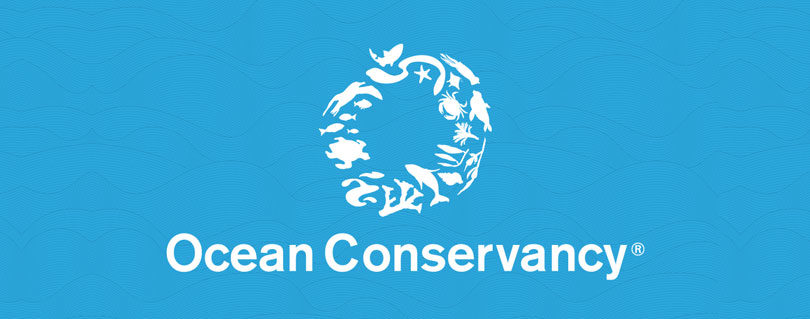For the Love of Our Ocean
Published by Ocean Conservancy
In many ways, Elaine Shen’s journey in marine conservation parallels the footsteps of Roger Arliner Young, the first African-American woman to receive a doctorate in zoology. We met five years ago when Elaine was studying ecology and evolutionary biology at Rice University. At that time, she was still a pre-med student, which appeased her parents who were not yet aware of her desire to be a marine biologist and what that entailed. Today, she is completing her first year as a PhD student studying the impacts of reef fisheries in Indonesia. We hope this conversation inspires others who want to brave the road less taken.
Cindy Nguyen: Why did you decide to pursue marine conservation? Were there any big pivotal moments?
Elaine Shen: I spent a lot of my weekends fishing with my dad in the Gulf of Mexico. I was always very curious about the ocean. I wanted to be a marine biologist when I was very young, but like a lot of childhood dreams, it dwindled.
In college I began pursuing a career in medicine—something I wasn’t that into—and had a stint in marine biology. Very quickly, I realized that I never felt the same about one as I did about the other. Eventually I sought out a lot of opportunities in the marine conservation world, and I fell in love. It felt right.
At the same time, I felt compelled to become a vegetarian. I grew up eating a lot of my dad’s cooking, which had a lot of meat and fish. When I told them I could not eat half of the things on the table, it caused a lot of tension until I compromised. Today I just eat meat when I’m at home and this has improved my relationship with my parents because my family comes together over Chinese food. It’s my parents’ way of showing their love and respect.


“There’s a sense of community around food that opened my eyes to not just protecting the ocean, but integrating people into that conversation. ”
PhD Student
People depend on the ocean. And people have to eat. That was my personal shift in marine conservation—conserving not only ecosystems but the people that depend on them.


Cindy: Do you have any favorite, memorable moments in the water?
Elaine: My whole life I was never able to financially justify snorkeling or diving to myself, much less my parents, so getting the opportunity to do that is amazing. The first time I ever snorkeled was in the Florida Keys on an Alternative Spring Break trip where we went to a sandbar to see some patch reefs. I remember being so excited, I even shed a few tears.
Cindy: What does it feel like to be an Asian American in this field?
Elaine: Oftentimes I’m the only female Asian American person in the room. It’s only very recently that diversity in this field is increasing. Through Twitter, I have found more I have found more Asians and Asian Americans within marine biology—like Asha De Vos, Brian Cheng, Priya Shukla and my friend Bryan Nguyen.


“ You might think, science is supposed to be objective…why does it matter who does the work? But the bigger question is, who gets to ask the scientific questions? Who gets to shape what we do and don’t do? ”
PhD Student


Cindy: What do you see as the biggest challenge in integrating diversity, equity and inclusion into marine conservation?
Elaine: Some institutions make it very cost prohibitive to be in this field. I remember getting excited about field-based internships, only to find out they are unpaid or don’t pay enough. Some require diving experience. Not everyone can do that.
How are you going to compete with those who do have access? People who qualify under these narrow metrics excel at the expense of those who don’t have a “standard” resume but who still have all the qualities to become a great scientist.


“ That’s what I thought it took to be a marine biologist—you have to do all of these expensive hobbies on a beautiful coastline to justify your love of the ocean. ”
PhD Student
Seeing people that look like you in a field that’s historically been exclusive to students from underrepresented backgrounds is very impactful. I think everyone can be a marine conservationist but it takes a good role model to see how you, in your circumstances, can pursue that.
Cindy: If you could go back to when you were a kid, what would you tell yourself?
Elaine: I would tell my younger self: continue to be stubborn and fight for what you want. Stay headstrong and try not to doubt yourself as much. The most rewarding thing for me is to talk to people about how they feel about the ocean and to work with students and help mentor them. I want to bring people up in any way that I can.


Elaine poignantly conveys both the internal conflicts and moments of validation in her pursuit of an unconventional path. As a fellow Asian American pursuing conservation, I am honored to bring her story to you. I invite you, the reader, to share your story to those who are trying to find themselves in their work.
To stay updated on Elaine’s work, find her on Twitter!
Sign up for our emails!
The post For the Love of Our Ocean appeared first on Ocean Conservancy.
Read the full article at: https://oceanconservancy.org/blog/2019/08/16/for-the-love-of-our-ocean/



